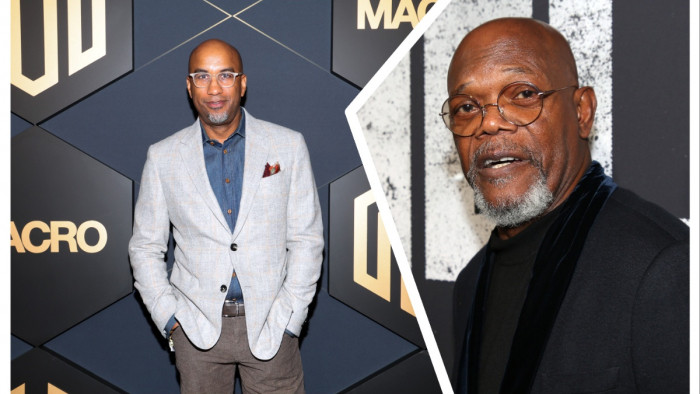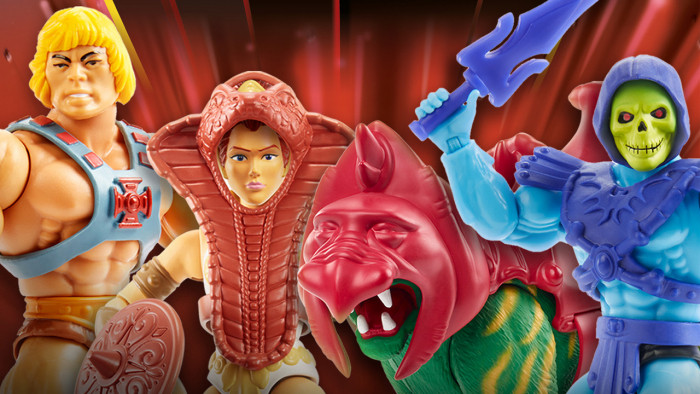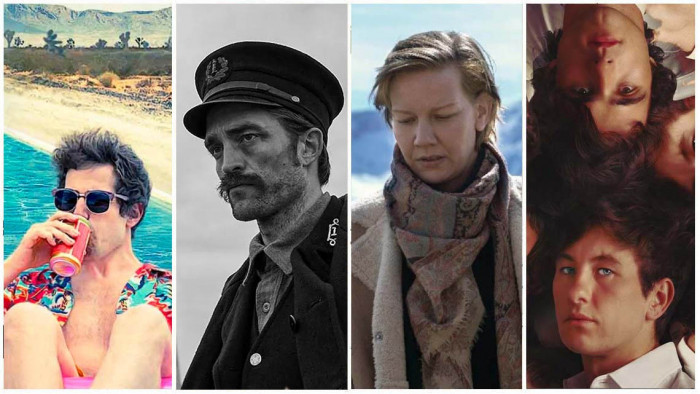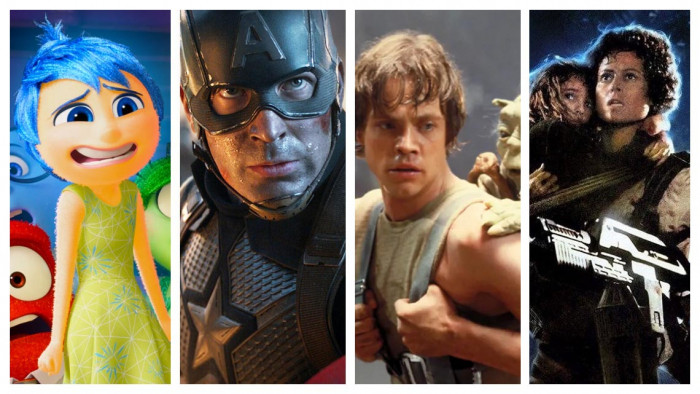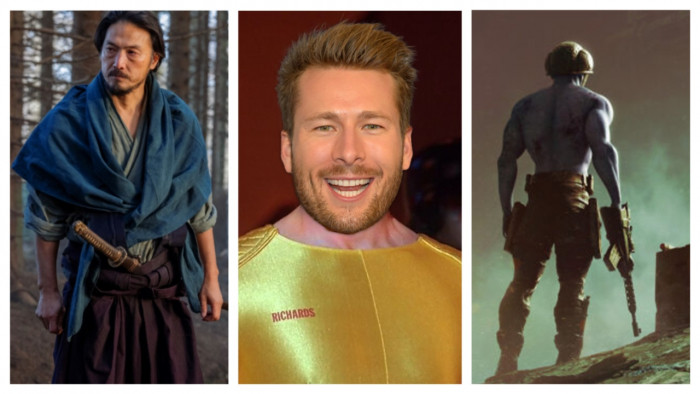Is everyone who loves jazz just a boring, pretentious nerd?
On La La Land and the boring white dude.


In the week that La La Land was nominated for fourteen Oscars, Shortlist writer Sam Diss asks if self-proclaimed ‘jazz fans’ are just liars simply trying to show they are smarter and better than everybody else…
Here’s a key moment in La La Land - winner of a record seven Golden Globes, nominated for a joint-record fourteen Academy Awards, a film destined to play in the background of a thousand lazy fingerings on student-dorm futons across the globe:
Sebastian (Ryan Gosling, a young jazz pianist who is stoic and handsome and brooding and smart and white and fucking loves jazz): What do you mean you don't like jazz?
Mia (Emma Stone, a young actress who doesn’t like jazz):It just means that when I listen to it, I don't like it.
Mia’s particular peccadillo is blown up by the filmmaker to be the defining force behind the narrative of the entire movie: How can you not like jazz? Let me show you why you are wrong.
Ignoring the fact that it’s a 7/10 movie dressed up for the ball, that it’s The Wedding Singer in spats and wing-tips (except for the fact that Sandler is a much better singer than Gosling), it’s a film about the importance of following your dream: especially if that dream is jazz.
But, until the film gifts him an inevitable redemption, Sebastian is just another pushy artiste of the worst kind – one who bullies his way through life and stuffs his opinions into the faces of others and dresses them up as facts. He is drawn to free jazz at the detriment of steady employment as a piano player in a Hollywood restaurant who just want him to play some nice piano. He literally shoves past Stone’s character as she comes to introduce herself, so lost in own self-important bullshit as to totally ignore anyone else around him – but that’s allowed. ‘Cos that’s jazz, baby. *clutches fist* Ooh, man. The arts: I love ‘em.

In his criticism of the film and his specific criticism of the criticism of jazz, Salon.com writer and jazz critic Ben Ratliff rifles through the common complaints against the genre:
“The idea is that jazz is a time-waster, or a narcissist’s con: Certain self-important people—guys, often—won’t like you if you don’t like jazz, and you can’t like jazz if you don’t know jazz, and you can’t know jazz if you haven’t heard it all, every last album by every last performer, and none of it makes sense.”
Ratliff uses this criticism flippantly, but it certainly feels that way for all but those reading Philosophy and sitting back to toast their own brain with a brandy in a warm old chair.
Take the album ‘Om’ by legendary jazz musician John Coltrane. One critic wrote that “there is a sublime quality within this album, a spiritual transcendence… It's all about how far they can go, what new realms could be explored musically by pushing themselves, and their instruments, to the final limit.”
One of the most famous ‘free jazz’ albums, it is literally just twenty-nine minutes and seven seconds of noise.
“[‘Om’ is] a reference to the yearning for that sensation of ecstasy felt during spiritual cleansing. That thirst to be pure, to be innocent, and at peace with the world around us,” the critic wrote. It sounds like someone just pushed a band down an up-escalator, dooming the clanging to go on and on and on.
Eleven months ago, on a YouTube video of the Coltrane album, user 1sunyata wrote: “This is one of my favorites among the "avant guard" movement during the early 60s. I was just a young teenager learning music on keys and guitar. I became captivated by this music that had no boundries in time or space. This was a whole ‘nother dimension. Other than this album my all time fave is "Meditations" by Coltrane. I have these albums. Will soon add to my mp3 collection.” Five months later came the only reply, a user writing “I am jealous of you.”
Another commenter, named Pierro Scaruffi, wrote: “pretty boring tbh. very masturbatory.” This kicked off a chain of arguments with the final comment, by someone called Smyles Fife-Anthony, asking “would you like to discuss life after death?”
You can sweep it under the rug of personal preference if you like, but let’s compare jazz to wine: an appreciation of wine belies class, sophistication, and - whisper it, so low that you need to stoop to hear - intelligence. It’s something people want to flaunt: Come to my house, they might say, in cashmere, twill, corduroy. Come and smell-slash-drink this 1984 Porto Barros with me and my statuesque partner, Mauve.Come and look how well I’m doing.
In 2008, Stanford Business School found that telling people a wine was more expensive than it really is resulted in more positive reviews from drinkers. The SBS bods wrote that there was an increase in “blood oxygen level dependent activity in [the] medial orbitofrontal cortex, an area that is widely thought to encode for experienced pleasantness during experiential tasks.” Put simply: wine often tastes better for literally no other reason than the price. Maybe jazz works in a similar way.
Mia (wrong, scared): Maybe I'm not good enough!
Sebastian (correct, stoic):Yes, you are.
Mia: Maybe I'm not! It's like a pipe dream...
Sebastian: This is the dream! It's conflict and it's compromise, and it's very, very exciting!
Sebastian’s talking about Hollywood but he’s making a callback to jazz, speaking about jazz in coded terms we’ve heard so many times before. Words often associated with jazz, the jazz experience, the listening of jazz – and the enjoyment of it – can make it all sound like hard work. Conflict, compromise,discordance, dissonance – it’s like your nagging want for a melody is something to be ashamed of.

“Ted Gioia wrote an excellent book last year called How to Listen to Jazz,” says Brendan Wolfe, jazz critic and author of Finding Bix: The Life and Afterlife of a Jazz Legend (out in May). “But there’s the irony, though. Jazz began as popular art, as something to dance to, as stuff that teenagers would listen to on record over and over again in the way I did R.E.M. when I was in high school. Now you need to read a book to know how to listen to it? Can you imagine if someone wrote a book called How To Listen To Hip Hop?”
Why do jazz fans so often come across as total wankers? It’s enjoyment as cultural elitism, as oily intellectualism. Jazz as a learned skill; something you have to earn. The genre’s sometimes exclusionary nature (ooh, feel those difficult rhythms!) feels exacerbated by fedoras and finger snaps, pretentiousness and class dynamics, music those without letters after their name couldn’t hope to comprehend.
It’s something I really, really, really tried to make part of my cultural repertoire up until about the age of twenty-two, around about the time when I stopped trying to overcompensate for my lack of further education with Spotify-and-Wikipedia-binge autodidactism. I think I’d already missed the deadline for pretentious nonsense by a full year.
“I can totally understand why some might see jazz as inaccessible or impenetrable,” says Stewart Smith, jazz fan and music writer at The Wire and Quietus. “It can be very complex, weird, and abrasive music, but then you could say that about any genre. And, of course, there is some stuff that's just total bollocks. What I would say, however, is not to worry about understanding it on a technical level. Few people actually do...”

Writer, broadcaster, and educator Willard Jenkins remains one of relatively few black jazz critics. "I recently posted a commentary on Facebook urging jazz musicians to better interact with their audiences as a means of what I’ve often referred to as ‘de-mystifying jazz’,” he said via email. “This music remains a bit of a mystery to some potential listeners and I think musicians more informatively engaging their audiences can help break down those barriers."
"But then you also have to factor in the black community’s often puzzling neglect of jazz music. On the one hand you have a music which is indisputably in large part a product of the African experience in America, the bulk of whose most noted innovators have been black musicians, and a music to which black musicians continue to make great contributions, yet journalism and criticism on the form has largely not come from black writers...”
“Perhaps if there were – for example – more black writers on jazz and more opportunities for written jazz commentary in African American-oriented publications and broadcast outlets, the recognition of the jazz art form would be heightened among black readers, which would certainly serve to build and develop that sector of the jazz audience. And having a more diverse set of voices writing about the music would help to broaden the music’s reach and perception among the public."
Keith (played by John Legend, pretty much the only black character in the film, to Sebastian): How are you going to be a revolutionary if you're such a traditionalist? You're holding onto the past but jazz is about the future...
As well as issues with race, being a boring jazz nerd is a distinctly gendered issue. As Hadley Freeman wrote last weekend for The Guardian, “Ryan Gosling in La La Land is like every bad date you’ve ever had”:
“Jazz snobs don’t even need to be into music: those guys who insist on ordering your drink because only they understand what makes a good cocktail? How you absolutely must swap your Starbucks for the fresh roasted beans they will hand-grind every morning? How you must respect their childish obsession with (insert name of sport team) while they make fun of your interest in fashion/romantic comedies/80s music? Jazz snobs, one and all.”
“I use the male gender advisedly,” she adds, “because I have yet to meet a woman who insists on imposing her taste on everyone around her…”
New York Times’ John Caramanca called La La Land “a celebration of moving through the present moment — political, racial, representational — with blinders on”.
And it is. It’s the whitest film ever; a treatise in privilege. It’s Mansplain: The Movie.And in that way, as an expression of modern jazz, maybe it’s perfect. Even if jazz is music where the musicians playing enjoy it much more than the audiences, there’s plenty of great jazz out there (genuinely). But it’s always obscured by people like that creepy baby-sitter dilettante dude in Jerry Maguire, trying to make Rene Zellweger feel better by lecturing her on Miles Davis and John Coltrane – “Two masters of freedom, playing at a time before their art was corrupted by a zillion cocktail lounge - performers who destroyed the legacy of the only American art form… Jazz.” – despite the two never having played together...
Maybe not everyone who likes jazz is a pretentious dickhead, but it definitely feels like every pretentious dickhead likes jazz.
Latest
Related Reviews and Shortlists


The 10 best war movies of the 21st century



